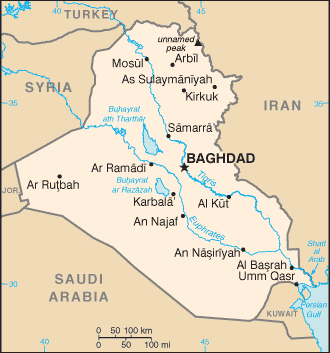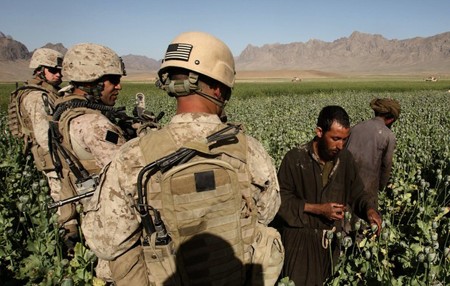
Why is everyone so scared of letting the leader of the British National Party speak during tonight's Question Time show? Why is everyone so worried about what it will signify, to take a seat on a panel next to him, in obvious opposition to him?
Don't give me that crap about legitimising him. What additional legitimacy does a democratically elected representative of the people need?
Tell me what's really on your mind people.
Are you afraid that cool, articulate, unflustered,
racist Nick Griffin will get his despicable point across better than the representatives of the political mainstream?
Because that is what I am afraid of.
I am afraid he will be calmer than the other guys.
Less arrogant in the eyes of the average viewer.
I am afraid he will be more articulate and more convincing, keeping things real and relevant, never using abstractions and generalisations. I am afraid he will manage to reduce big issues to small, personal fears in a way that is non-patronising and almost self-evident.
I am afraid he will do all that without insulting any of his fellow panelists while they will be struggling to hold back cries of 'begone you disgusting racist slug'.
And I am afraid that the other side, the non-racist side, our side damn it, will be left speaking in generalities, attacking his racism but offering no coherent answer to counter his concerns and offering absolutely no counter-solution to his own objectionable measures.
So the problem is not him. It's us, folks.
Let's call a spade a spade.
Immigration is not a subject most parties are comfortable with. Invariably, even parties on the left are in favour of controlling the borders and not throwing the gates open to all and sundry. Increasingly centre and left-of-centre parties grudgingly accept that freedom of speech will not deal with radical Islamist preachers in our midst 'organically' and a bold fresh look is needed asking where their liberty infringes on someone else's – not on a community basis but on an individual basis, you know, the way we used to apply the law all these years before this became such a 'hot potato' issue. And then there is the issue of building community, and living together in all our multi-colour, multi-faith, multilingual splendour.
And many left or centre-left politicians are not comfortable with immigration debates because they rightly consider these three issues distinct and separate and find that more and more people don't and in fudging the debate these people confuse the matter, create panics and allow concerns over hate preachers to poison community relations.
Nick Griffin is one of those people.
He is not afraid to talk about immigration. For him the distinctions are distracting and the problem boils down to what moves and scares the individual citizen. And his solutions are stark, simple, bold. And racist.
But what is the other side counter-suggesting?
A convoluted narrative of freedom, multi-culturalism and necessary border controls, constant reminders that the problem is multi-faceted and many-tiered and above all not simple. All solutions offered are halting, nuanced, complicated, careful – because one should not confuse the issues. And rightly so. Still, I fear that Nick Griffin has this one wrapped up if 'straight talking' is what the audience are after.
Holding a contradiction in his mind is not a challenge for Mr Griffin who is both articulate and clever. He understand the contradictions and in them he sees the weakness his opponents most suffer from. This contradiction, in his hands, stops being innate in the subject and becomes a weakness in his opponents' political will and solutions' agenda.
What do we have to counter that? I am using 'we' in the loosest possible sense here, siding with the people who disagree with Nick Griffin even if that is the only thing we agree on.
What have we got?
Don't forget Jack Straw is sitting on our side.
Griffin is articulate, confident and confidence-inspiring. He sounds like he commands the issues and can effortlessly pare them down to their essence. Even though that essence is tainted, one-sided and heavily nuanced, he appears to be offering common sense summaries and bold solutions. Jack Straw is not and does not.
So why are we so scared of letting him speak tonight?
Not because we disagree profoundly with what he has to say – that, if anything, is reason to take him on, thrash it out, expose him to the public, ensure the other side is heard.
Not because we fear what his effect might be on the polity – because he is already in the polity so it is too late, plus we already know that enforced isolation and silence creates heroes and not villains.
It is because we are afraid we can't match him, blow for blow, for the hearts and minds of the viewers. And that is terrifying.
It's because we know Nick Griffin is as popular as his opinions are objectionable. And we know we have all the good arguments. But we don't have a Nick Griffin on our side to deliver those arguments in level, even-toned, convincing, populist nuggets.
So we are scared.
Of course we are scared.
I, for one, am terrified.
And I don't know about you. But I will be glued to Question Time tonight. Munching pop-corn, mumbling to myself and hoping against hope that Griffin will have a bad day, that he will lose his cool, that he will sound to all tonight as offensive as he sounds to me all the time. And that Baroness Warsi, Chris Huhne or Bonnie Greer will pull an ace out of their sleeves explaining why a world where Nick Griffin's opinions are not put into practice is a better world for all. And that Jack Straw stays silent. Wishful thinking but what the hell, while I'm at it I might as well.
I just hope that the arguments for our side go further than 'Nick Griffin, you are a racist' because he will slam them down and go for a home run before anything else has been stated. Not because he is not racist. But because pointing out the obvious in a petulant way is not good debating.
Telling him his policies are wrong because he is a bad person is a non-sequitur that makes us look like fools with nothing else to say and gives him the moral high-ground.
And that's the last place you want to concede to your neighborhood racist. He is already self-appointed defender of home and hearth, hand him the moral high ground on a platter and what have you got? A populist, playing on everyone's most closely guarded fears, articulating their concerns about safety on their streets, jobs for their children, a culture they call their own, who is victimised by the very same people who don't address the people's worries, the very same people who have no counter-argument to throw his way than an insult.
Attack him on who he is rather than what he says and you've driven people into his arms in droves.
You do see where I'm going with this right?
The urge to slap Nick Griffin lurks in us all. But that is not what is called for today.
We need to take him on the issues or go home. Blow by blow, line by line. Address the same questions, counter his conclusions, offer alternative solutions.
Speak to the same people he is speaking to on the same issues.
He claims he is of the people, for the people. Do we all realise what that means?
If he is addressing a struggling, white manual labourer in Bradford, we cannot be addressing a professor of ethics at Edinburgh. If he speaks about protection against radical Islam, we cannot be addressing comparative theology scholars who understand that the Islamic Umma is a community of peace ergo Griffin is wrong.
Take him on, damn it. Being more highbrow than him is how we lose this battle not how we win it.
Surely, career politicians can do this, right?
So what are we afraid of?
Are we afraid of 'the people'? Their inability to see through him and know better? Then we should all go home because no democrat is afraid of the people. You either trust in the people or join the populists a la Nick Griffin.
So if not that then what?
Could it be that although we disagree with Griffin we have absolutely no ideas on the matter he is about to challenge us on that we are comfortable with? I sincerely hope not. But I can see no other explanation that makes sense. We are afraid of Nick Griffin because he's calling our bluff and, other than grand ideas, the political mainstream have nothing to suggest that makes sense to their voters.
In which case we should be afraid of Nick Griffin. Very afraid.













